I still remember when Pistolwhip came out from Top Shelf in 2001. Drawn by Matt Kindt, the book was a fascinating comic and in the years since, Kindt has created an incredible body of work as a writer and writer/artist in graphic novels like Two Sisters, Super Spy, Revolver, 3 Story, Red Handed, and series like Mind Mgmt and Dept. H. Kindt has also written a number of series in recent years for other artists. He’s written for Valiant, DC, and elsewhere, but his best work has been the creator owned projects he’s made including two exceptional collaborations with artist Tyler Jenkins, Black Badge and Grass Kings.
Kindt and I spoke right before New York Comic Con, where Dark Horse announced a new series written by Kindt and drawn by Wilfredo Torres called Bang!, right after he had just finished Kickstartering a new book, HEK Treasury, which he made with his two studiomates. This fall, Dark Horse is also publishing the final volumes of the library editions of Kindt’s series Mind Mgmt and Dept. H.
In addition, Matt Kindt has two new series out this fall. Ether: The Disappearance of Violet Bell, drawn by David Rubin, comes out from Dark Horse and is the third volume of the fantasy series. The series launched last month and #2 is out October 30th. And in November, BOOM! is releasing a very different kind of fantasy series, Folklords, drawn by Matt Smith.
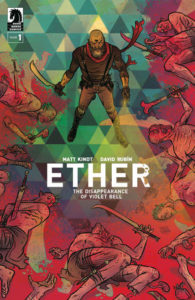
Matt Kindt: My standard description is a “fantasy/sci-fi Sherlock Holmes” and that’s still the case. But our main guy – Boone – isn’t a static character. By the end of this final arc – he’s a different person than he was when we started the series. I think that’s what really sets this series apart from Sherlock Holmes and a lot of other series – and 99 percent of comics – where the protagonist is set up and then goes on adventures or solves mysteries. Our character does that – but you see it start to wear on him. It eventually grinds him down a bit – he loses a lot by the end of this story and it changes him.
Dueben: You were originally planning to draw the book. When David Rubin came on, how did that change the series and how you think about it?
Kindt: He definitely changed the tone – this was originally going to be something I was going to draw – but he was available and I really wanted to work with him and immediately he changed the entire tone of the book. Initially there was a lot more navel-gazing and introspection – it was going to be REALLY sad. But David brought so much life and energy to the characters and the worlds we created – that, while, it’s still a thoughtful series and pretty sad – his art makes it a really tasty pill to swallow.
Dueben: You’ve spoken in other interviews about how you initially saw Ether as three series. Did you have the whole series mapped out from the start? And has it largely remained consistent with when you started writing?
Kindt: Yeah – I had a plan from the beginning and while I didn’t have the final scene figured out – I knew by the time I got there, the characters would be truly “alive” by then and the ending would suggest itself. It really doesn’t matter what kind of character you put into a pitch – you don’t really find that character’s true voice and spirit until you’ve written a few hundred pages of story with them in it. I had a general idea, then David and I wound them up and let them loose and it ends up being more like walking a dog that’s on the scent – you hold on to the leash and let it go where it’s going to go.
Dueben: Is that typically how you write?
Kindt: Yeah. I set up milestones that I try to get to with the characters. Basically the bigger “plot points.” And then I just try to inhabit the character and steer them towards the bigger moments. Sometimes they get there – and sometimes, after I’ve written a character for a while – the course adjusts. 99 percent of writing for me is just pretending I’m that person. I think that’s probably why I don’t really enjoy roleplaying games. I’m doing that all day. Most of the time I have the ending figured out for the book or story.
Mind Mgmt was always going to end with that building collapsing – mild spoiler, I guess – but how they characters reacted was something I didn’t know until I’d written them for three years. Dept. H – I had a couple different ideas – the choice that the main character makes at the end? In a crazy way I just left that up to her – I didn’t know what she was going to do until she got there. I’m doing a similar thing with Folklords now. I know the ending – or some of the big reveals in it – but I’m not really sure how the main character is going to react to it. I have ideas – but I don’t really like deciding until we get there.
Dueben: I guess because I read so much work that you wrote and drew recently, I was very aware of the differences in pacing in Ether compared with some of your other work. Some of that may be having individual miniseries and that structure?
Kindt: The structure was subtly different. I wanted to tell stories that could be read in any order. You could start with Book 3 and read it backwards and it would work just as well. It might even be more heartbreaking that way. It’s something similar that I did with one of my early books – Super Spy – which you could really just sit down and read any chapter in any order and get a different kind of experience out of it.
Dueben: What was the biggest challenge in writing them so they could be read in any order, or in trying to establish that structure?
Kindt: I think the nature of each story being a kind of self-contained mystery makes the reading order flexible. You’re seeing a character’s progression – either sequentially as he matures, or you’re seeing this broken character and then seeing how he got there. I think both ways are interesting.
Dueben: Each volume of Ether is about a “case” that Boone has to solve, but what I took away from each is David’s designs and colors and the impression of the world, and the sense that Boone is getting beaten down. Even though he figures out what happens and knows more, he fails in almost every way.
Kindt: Yeah – I think I’m trying to cut against the grain with that kind of standard Sherlock Holmes mystery story where it’s really a kind of procedural thing. I watch a LOT of true crime shows and documentaries and I’m always struck by the interviews with veteran homicide detectives. They all seem broken in some way. I don’t think you can tackle that kind of job and come out on the other side and be the same person you were going in. I wanted to explore that kind of character – but do it in a more fun way, you know? David’s art and design goes a long way toward putting the sugar coating on that bitter pill of an idea.
Dueben: So no plans or interest in doing a fourth one? Is there nowhere for Boone to go at the end of the series? Do you not have more ideas?
Kindt: I always have ideas. [Laughs] And I never say never! I thought I wouldn’t ever do another Mind Mgmt story but I’ve dipped back into it here and there with mini comics and the read-along record. So yeah – there’s a definite ending but also an entire world to explore if we want to. I really did envision this as a kind of Hellboy sort of structure where we could take a break and then return to it with something new every once in a while. So that might be something we end up doing – depending on David’s schedule. I’d never do it without him.
Dueben: In the first issue of the new series, we hear the story of The Seven Lucky Gods and why they’re “lucky” – “because they survived. And they persevered.” I feel like that is very key to understanding this book and so much of your work. You described Ether as a very personal work, and I feel like Dept. H and Ether are both departures from a lot of the work you’ve done before and I’m curious about what you’ve taken away from them.
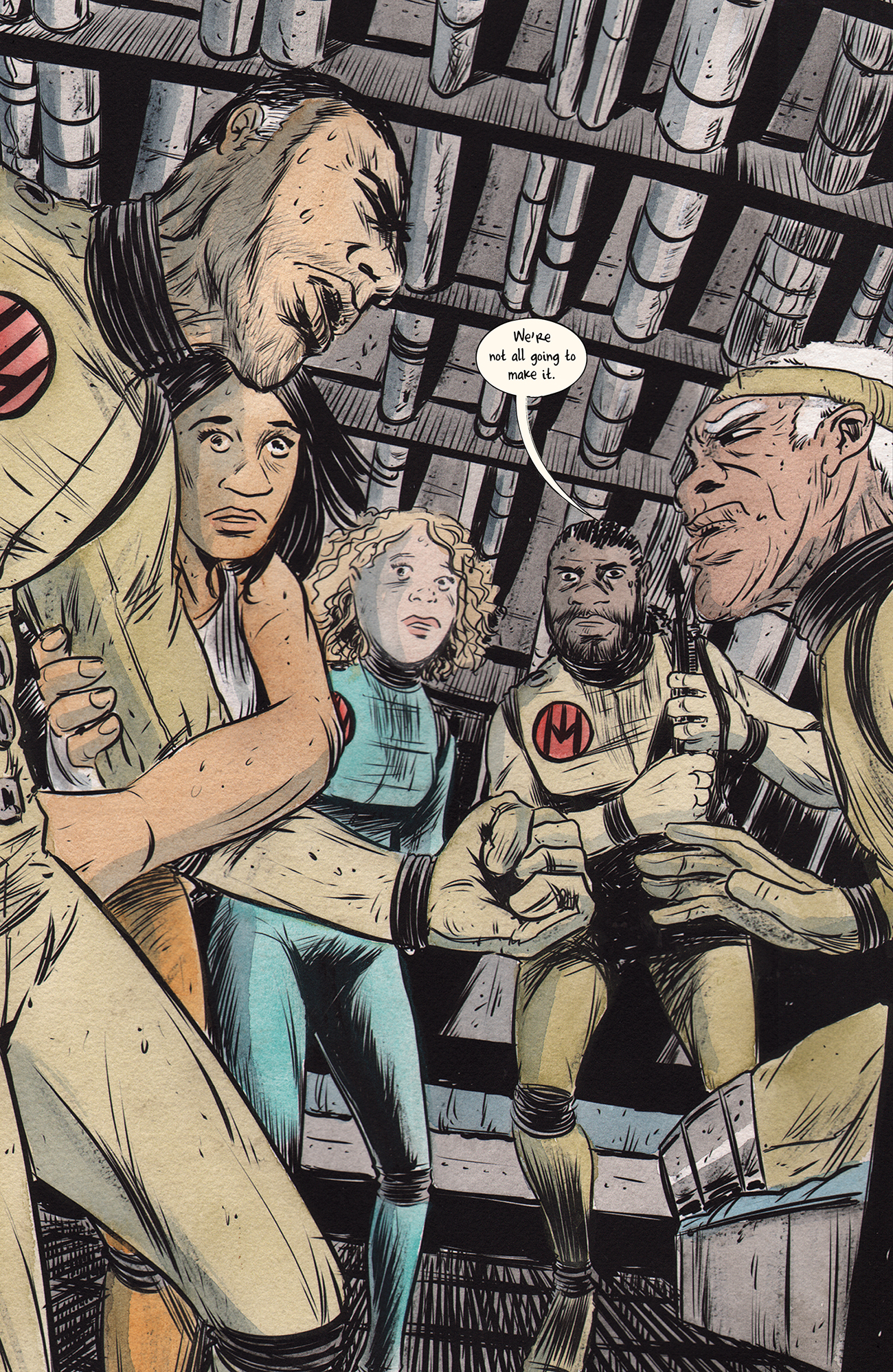
Kindt: I’ll have to think about that one. It’s funny – while I’m working on a project, I really don’t know the answer to “what is it about?” I know it’s about something – but until I’m done or nearly finished, I don’t really think about that. I just work kind of intuitively – hopping to the next story that’s seems the most interesting at the time. I’m pretty sure, at the end of my career, you could probably overlay my personal biography with all of the books I was doing at the time and it would all make sense. Whatever I was going through at the time was something I ended up grappling with in fiction.
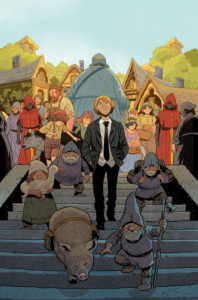
After that? I’ve got a couple more projects just about to be announced – so I can’t talk about them – but one is really kind of cathartic – it’s 99 action action. Something like I haven’t done before and it’s big and world-building. Really big. Bigger than anything I’ve done before – gonna be announced at NYCC I think. And then I’m returning to a property of mine in an interesting way – also not announced. It’s crazy.
And I’m currently working on the Mind Mgmt board game with two game designers Jay Cormier and Sen-Foong Lim. That project has a lot of new art and some crazy elements in it that both tell a story and also work as the board game. There’s really nothing else that’s going to even remotely look like this thing. I’m also writing a horror comic – a genre I’ve never done before and that’s been on my wish list for a while. Only because I find that most horror stuff just doesn’t appeal to me. I love The Shining and Alien – and those are technically “horror” but they kind of transcend it so I’m doing something that’s more in that mode of horror and it’s a real challenge. I’m just trying new things to keep me interested. I’m trying not to repeat myself.
Dueben: How has the process of writing for another artist changed for you over time as you’ve been writing more projects, and more creator-owned projects?
Kindt: It’s gotten easier, the more I do it. It’s definitely a learning process as a creator. There are some people I just don’t work well with – I think any time I’ve had a problem it’s always been about: “what makes the best comic possible” – and if someone’s not willing to go all the way. That’s kind of it. I’m passionate about comics. I want every page – every part of the comic to be something special. Nothing ever gets phoned in. If you want to phone something in or be lazy about it – there are plenty of day jobs out there that pay a lot more where you can half-ass it.
What happens is, I’ve found a handful of artists that I’m comfortable working with – we get each other – we’re pushing for the same goal and we help each other make the entire book better. Tyler and Hilary Jenkins, David of course. We’ve done enough work that it’s built up a trust level and a short hand – total honesty and commitment to making the book as good as it can possibly be. No corners cut. I’m a workaholic – the book is king and it needs to be served. I’ll do whatever it takes – go the extra mile – and these creators I’m working with are the same. That’s the key I think to good collaboration – pair with creators that LOVE making comics.
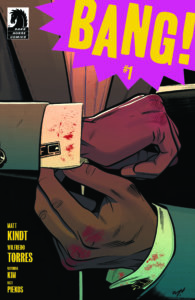
Dueben: Dark Horse is also releasing the final omnibus editions of Mind Mgmt and Dept. H, and I love both series. They’re very different books and I think of Dept. H as a departure for you and it’s a great comic and a great story, but aspects of it felt like you trying to do something different, and I’m curious about the experience of it.
Kindt: Yeah – every project I do is me trying to do something completely different. I’m trying to keep myself interested and engaged. I get bored pretty easily when reading or watching anything. I think it’s a product of getting older – I’ve read so much. I’ve watched so much TV and movies. I carry all of that and as a creator I’m trying to find the holes – the gaps in what’s been done before. That’s why comics is still such a rich medium for me – there is so much less of it out there – so much more ground to explore. We’re just scratching the surface as a creative medium.
Dueben: We’ve spoken a few times over the years and I reread our conversation from back in 2010 when Super Spy: Lost Dossiers came out and this line jumped out at me: “For the record, I hate ghost stories and supernatural stuff as a rule, so this book was sort of an exercise for me in creating something “supernatural” that would satisfy me as a reader. It ended up being a lot harder than I thought it would be.” So you dislike fantasy stories but you keep trying to make them and find a way to enjoy them? What is it about them that gnaws at you? What are you trying to get out of these stories you’re making that you don’t necessarily get out of stories you read/watch/etc.?
Kindt: I think there are a lot of supernatural and fantasy style trappings to those genres that I just tend not to like. I hate dragons. [Laughs] Brian Hurtt, who I share a studio with, keeps this big dragon sculpture on the shelf where I can see it just to annoy me. And he probably likes dragons. But it’s there to annoy me. [Laughs] I just think there’s a tendency with fantasy and supernatural for it to be more about the genre than things I relate to. I love character and there’s a very rational part of me that needs to have a story “make sense” in some way – to have an internal logic.
I’m a huge David Lynch fan – which seems to fly into the face of that statement – but there is an internal logic and a language he uses that makes sense to me. And he grounds that fantasy in a very real and mundane world. That helps to balance it all. So with something like Ether – that’s really out there – I felt like it was important to ground it with very real characters and real emotions and problems. I was probably halfway through writing this thing when I realized what I was writing about. And I hesitate to say it – I want readers to take away what they want from it. But it really ended up being one of my most personal works. All I’ll say is that Boone’s relationship and struggles with his work are something we have in common. Boone is a cautionary tale for myself.
Dueben: Like you said, you have no interest in the trappings of fantasy stories, but you’re very interested in what fantasy means. And what fantasy costs, which isn’t something comics often addresses, but that question of the cost feels very personal.
Kindt: I never really know what a book is “about.” Usually I find out afterward when I talk to readers and they describe what it means to them. Or I’ll read a particularly insightful review that analyzes it. This series – it was the first time where halfway through writing volume two – it hit me like a lightning bolt. I hesitate to say “what it’s about” because I really want to preserve that meaning for every person that reads it. But what I will say is that, for me alone, Boone’s life is a cautionary tale. For getting too obsessed with my work.
I love comics. I love every part of making them. I end up kind of dissolving and entering these worlds I’m writing and I disappear from “real life.” It’s what I love about writing and drawing. But it means I’m not there with the people around me and my family. So I think, writing this one, just made me aware – made me realize that it’s super important to strike a balance. I’m lucky that I get to do the thing I love for a living – but I have a family too and if you don’t take some very specific time to enjoy that part? It’ll just disappear while you’re not looking.
Dueben: Time is a character in your stories. Or the ways that time change us? I mentioned the cost of fantasy, and time is similarly something that comics don’t often engage with. And this has been true of so much of your work. I literally started writing this question intending to ask about how you write characters, but I wonder if this really has more to do with how you understand people.
Kindt: I’m not really sure I understand anyone. I think I’ve ended up reading about people and history and things and listening – to try to figure people out. I have no idea. I’ve always been obsessed with time and time travel – and I’m not sure why. I think it has to do with the loss and regret and missed opportunities. But I also play this weird mind game with myself. I’ll pick a year of my life and then try to imagine having to relive that entire year. Not just key moments or good parts. But all of it. And it’s a kind of torture. It’d be great to go back and see my daughter again when she was three years old. But then I’d also have to go to the dentist again and get my wisdom tooth pulled out. I just don’t know. I think I prefer to just keep going forward – and see what happens.
Dueben: What are you working on now and what you want to do next after these big, long-form projects? You’ve been working on various smaller projects or just writing, are you thinking about something else that’s big and on that scale?
Kindt: [I have] a couple new books with Tyler and Hilary Jenkins closer to the end of the year. I have a big dry-erase board with projects – and there are literally 12 things on there right now in various stages of development.
Ether: The Disappearance of Violet Bell #2 hits shelves October 30; check out a preview of the new issue below. To keep up with Matt Kindt on social media, follow him on Twitter.
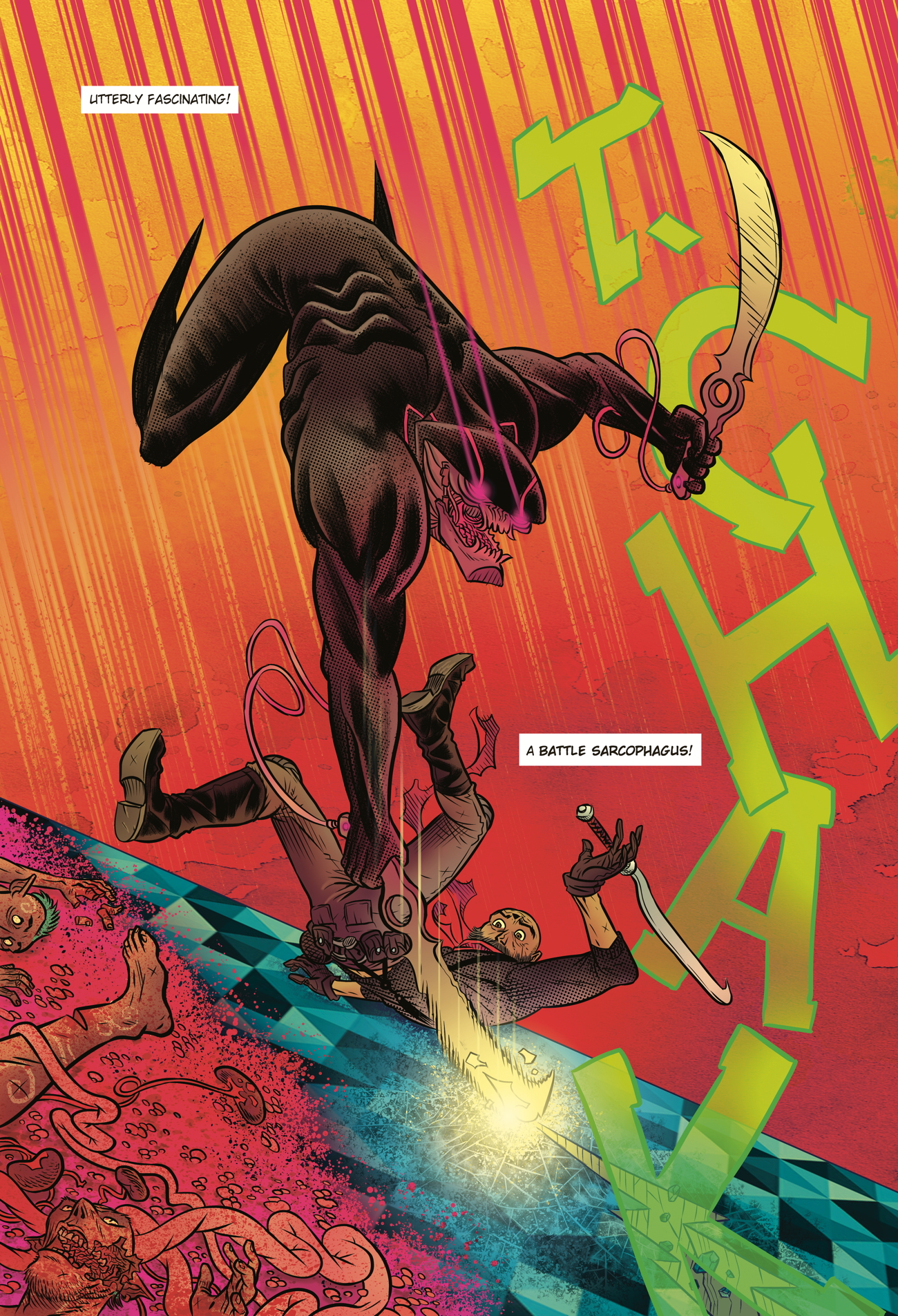
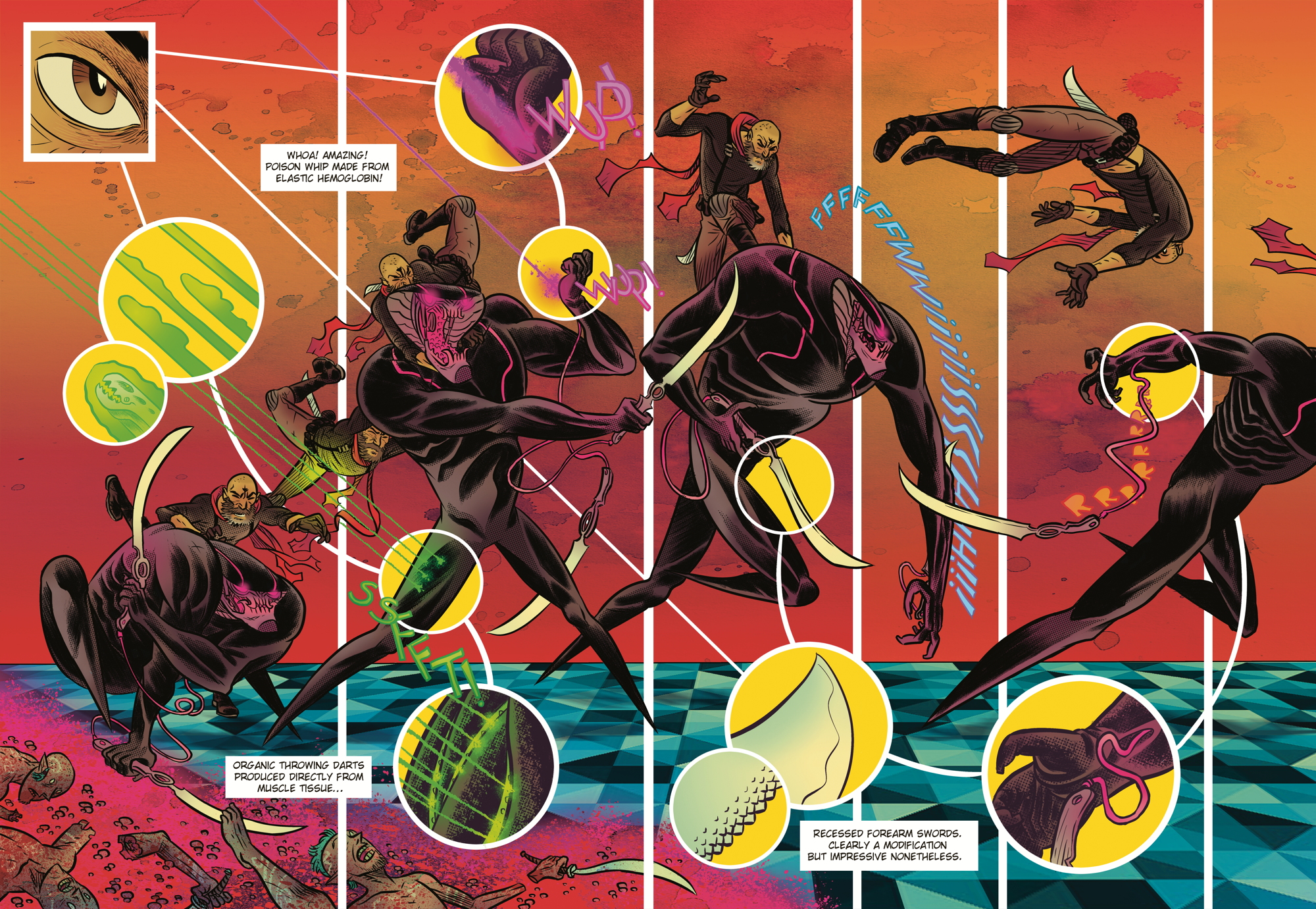


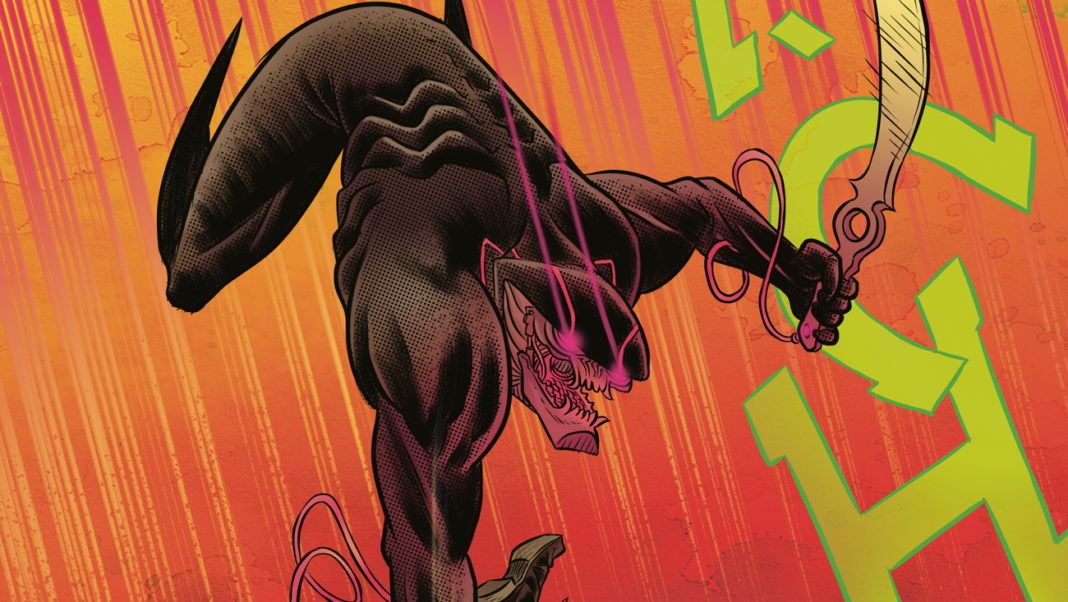
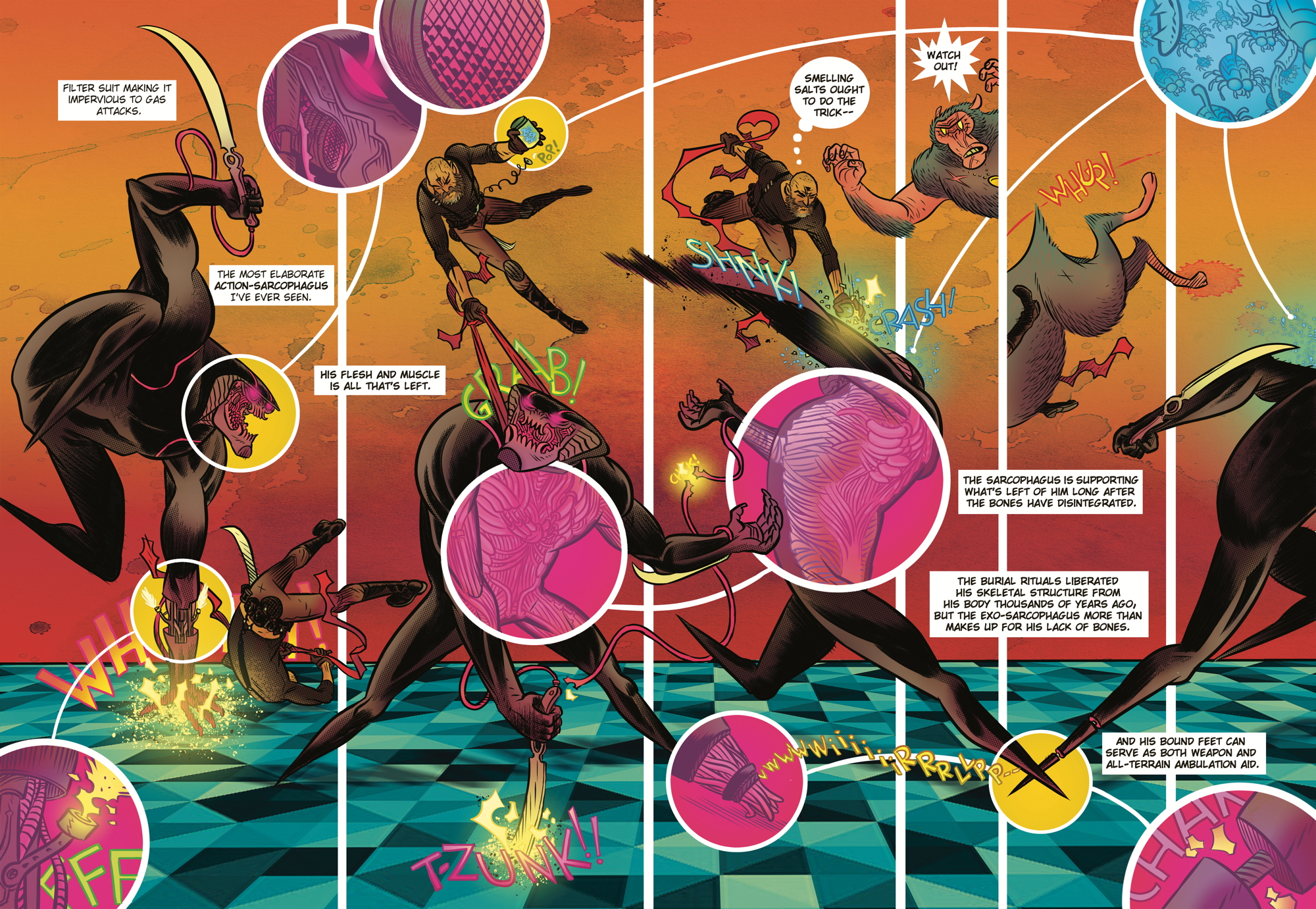
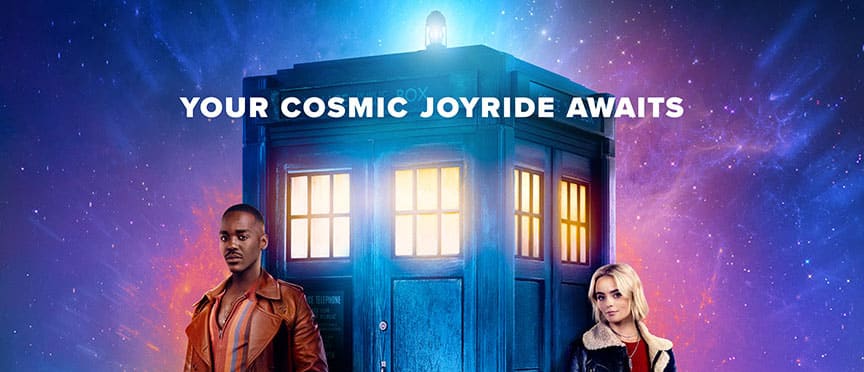
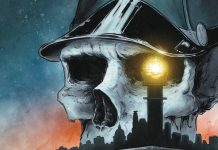
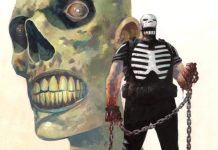


That part about Boone makes me wonder how all of the stories Kindt writes affect him. He’s written quite a lot of mindbenders: https://gutternaut.net/2018/10/creator-highlights-matt-kindt/
Excellent interview ! Thank you sir !
Comments are closed.